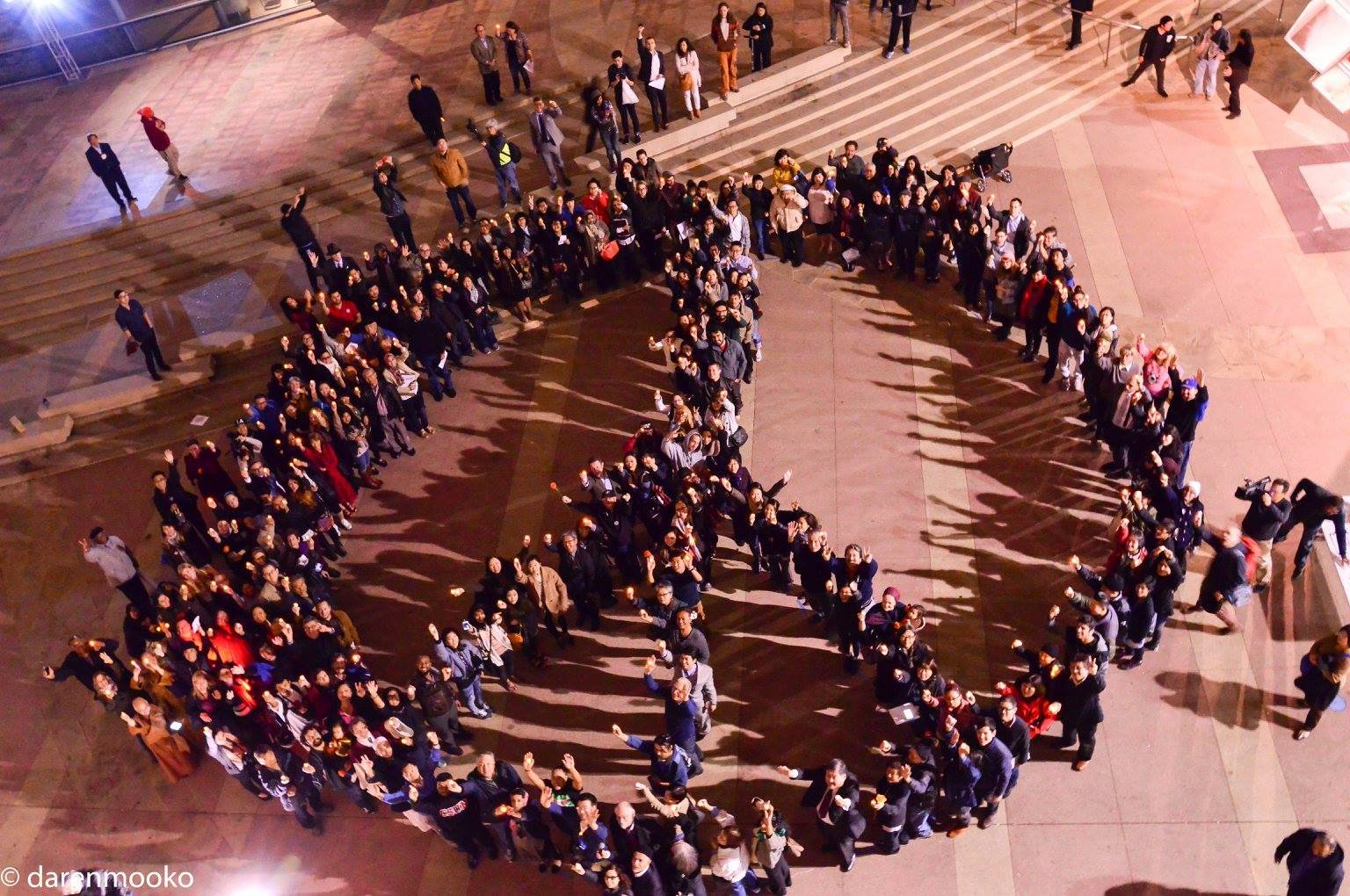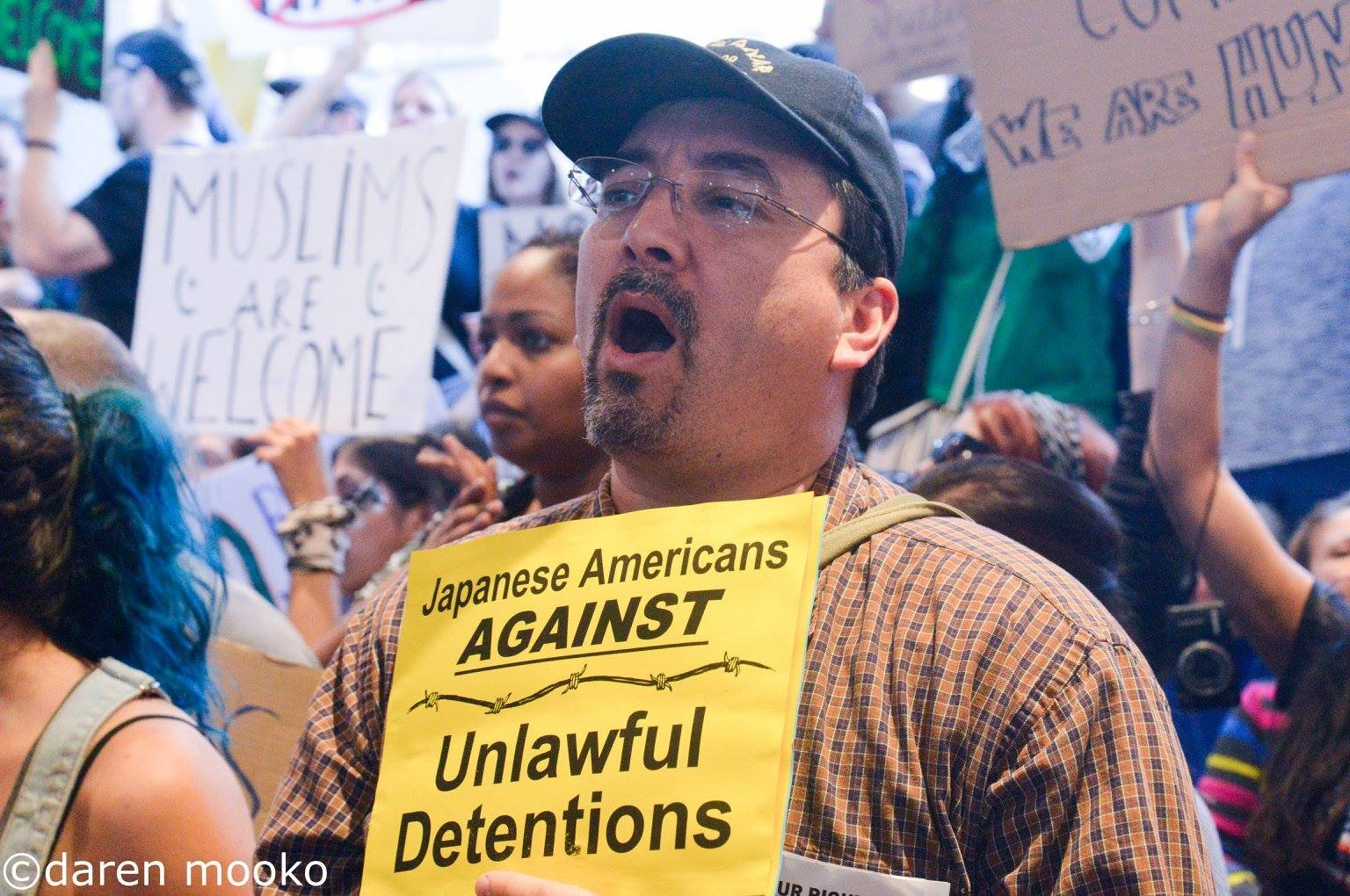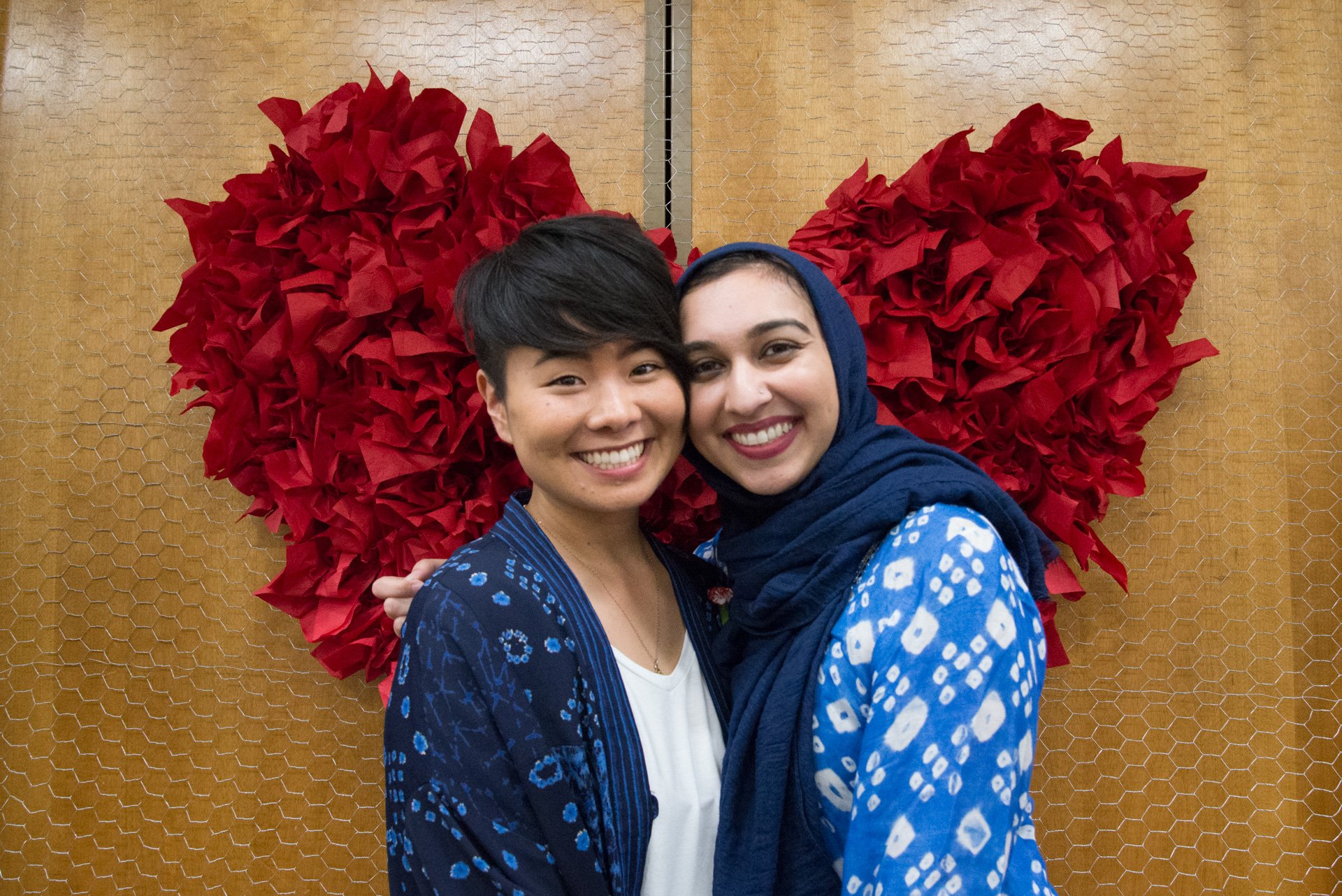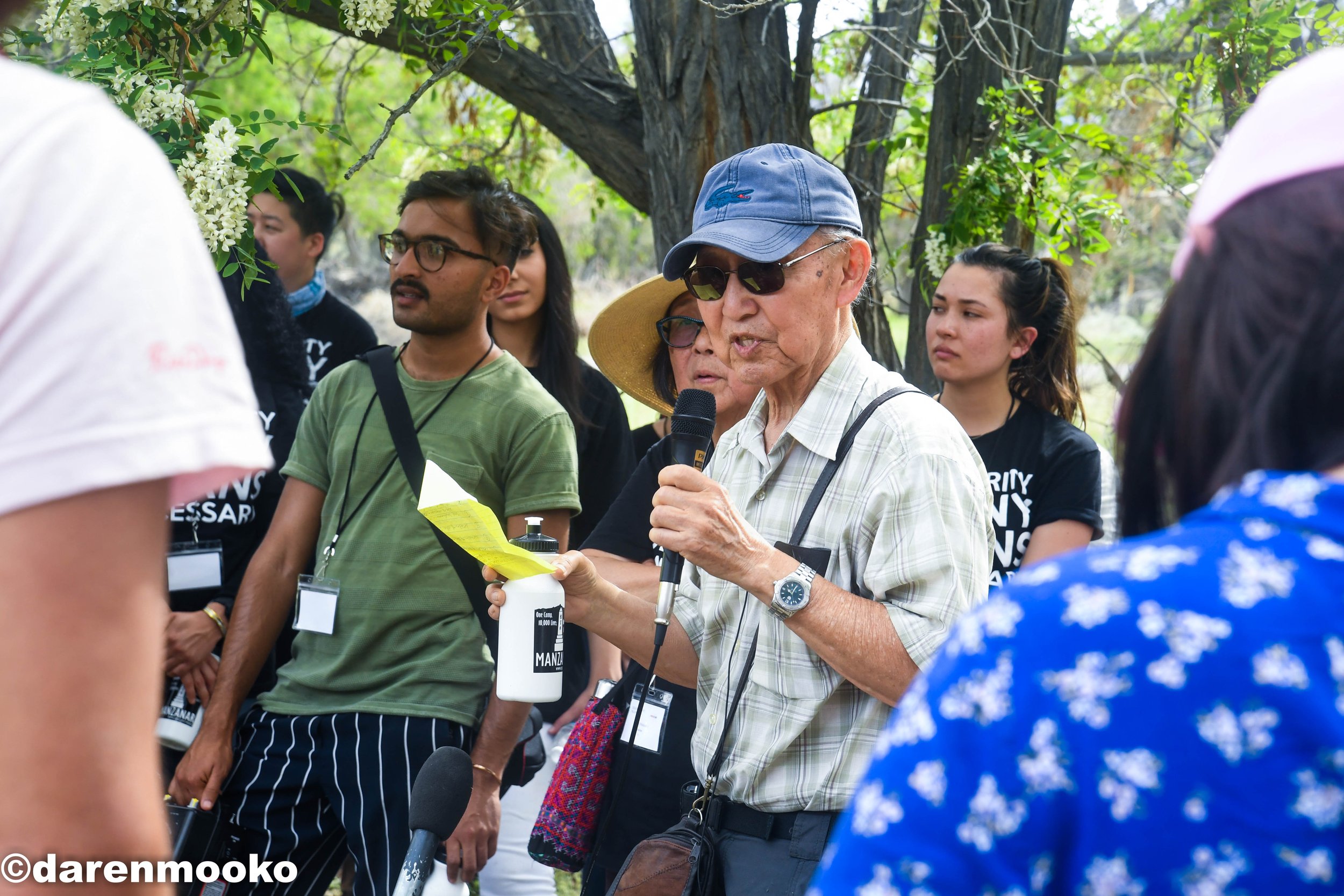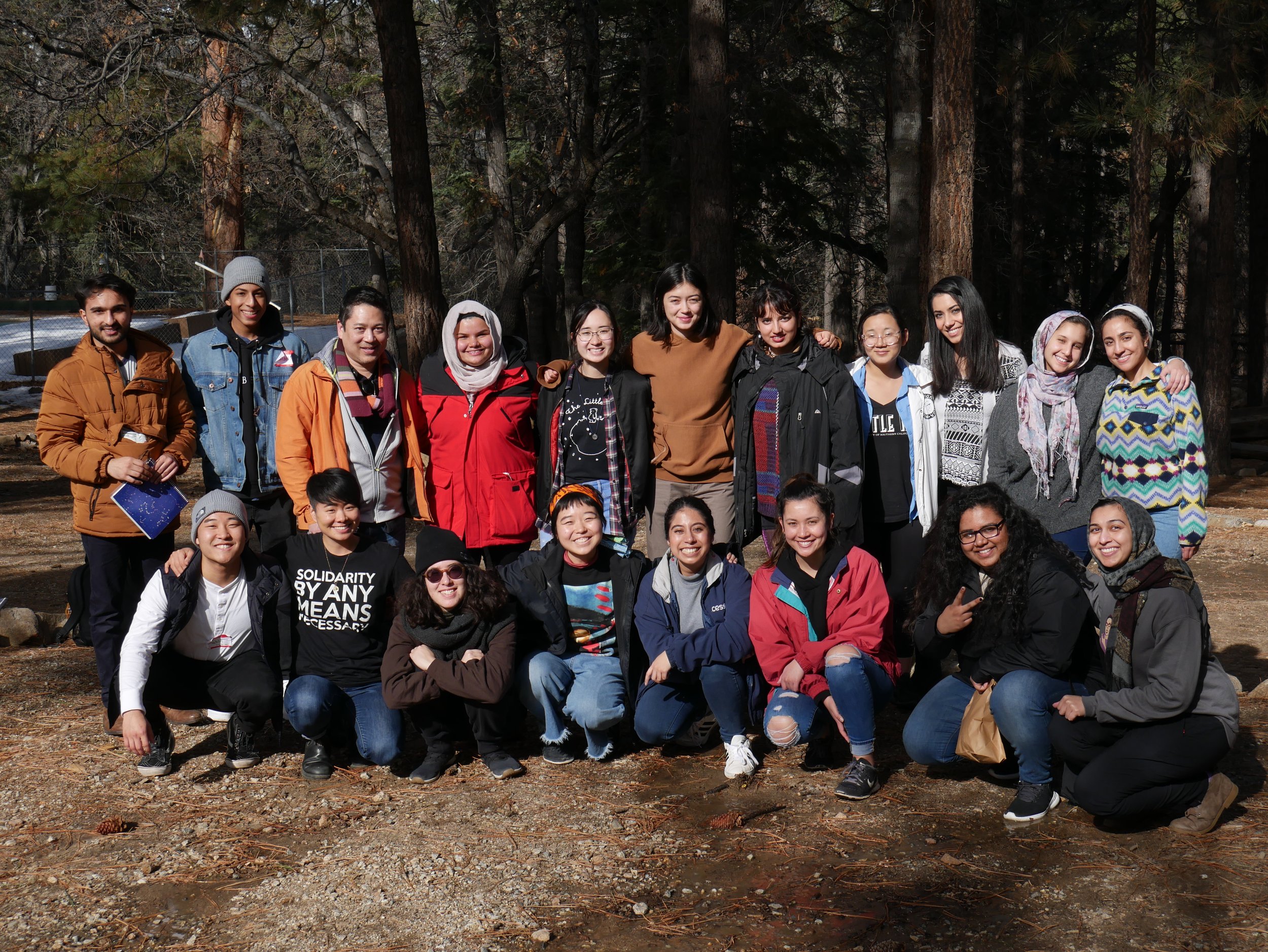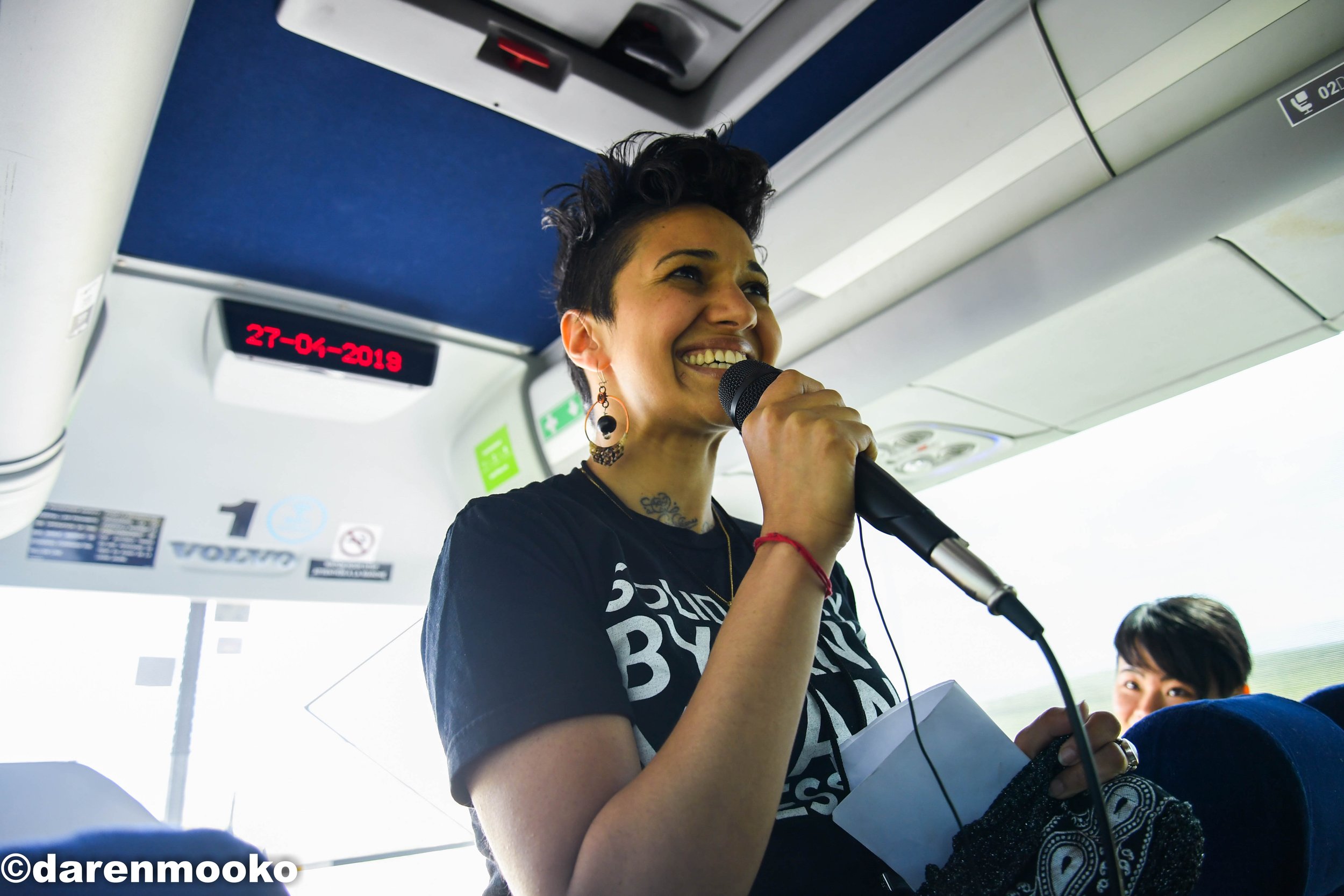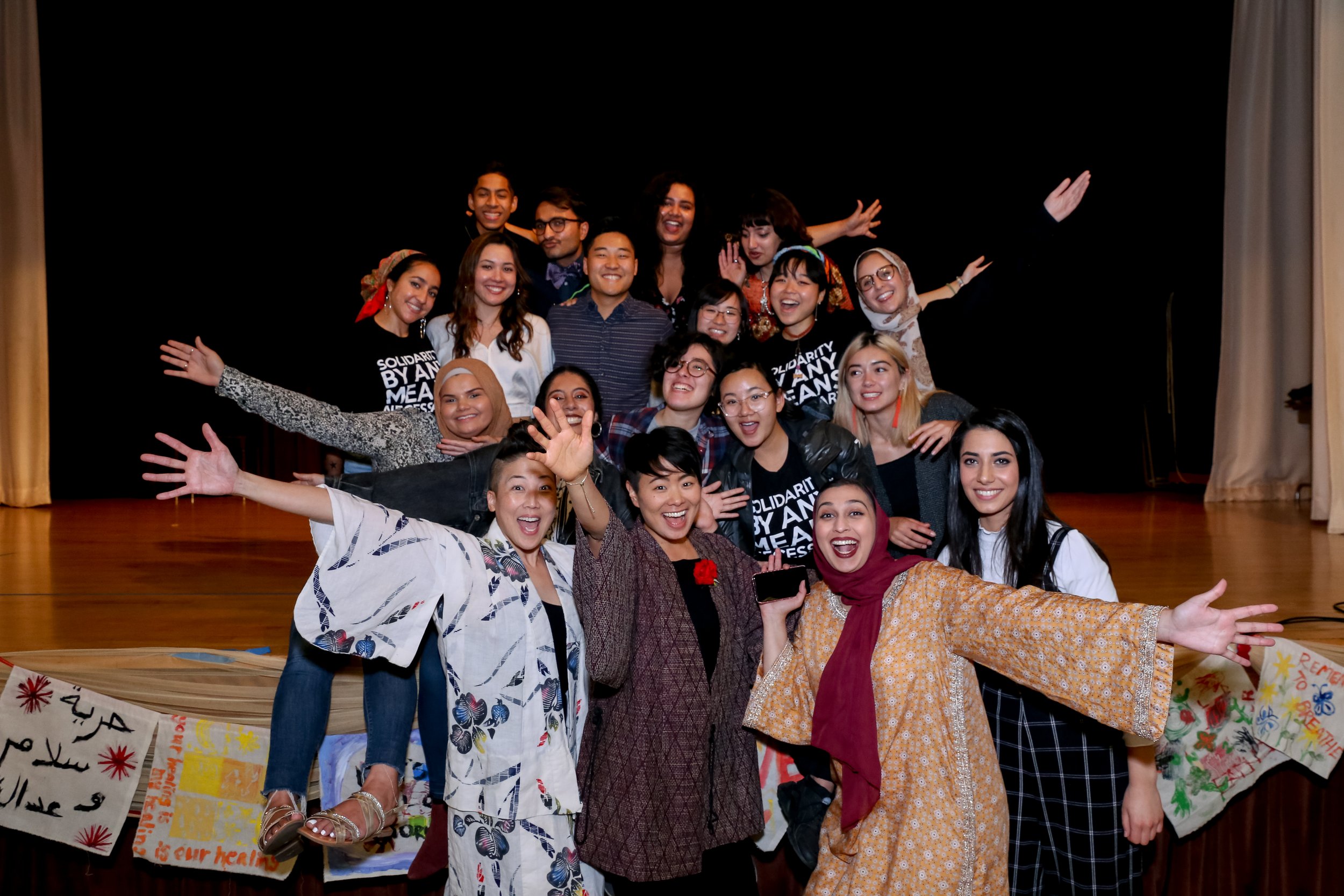
Who We Are
Mission
Vigilant Love created spaces for connection and grassroots movement to protect the safety and justice of communities impacted by Islamophobia and white supremacist violence in the greater Los Angeles area and beyond.
Vision
In the face of cyclical violence, we envision the embodiment of vigilant love amongst generations of multi-ethnic and inter-spiritual community who create pathways to liberation and healing together.
Values
All our work was guided by our values of artivism, healing justice, relationship-building, shura (consultation), and transformation.
Our History
Vigilant Love (VL) started as a coalition founded upon long-standing relationships of Los Angeles-based Muslim American and Japanese American leaders and solidarity programming since 9/11. After the attacks on the Twin Towers in 2001, many Japanese Americans in Los Angeles noticed that the violence against Muslims, South Asians, Arabs, and Sikh folks mirrored the experience of Japanese Americans who were profiled, surveilled and incarcerated in the aftermath of World War II. In the days after 9/11 over 300 Japanese Americans gathered in Little Tokyo, Los Angeles to show support for all the victims and those being impacted by Islamophobic state and interpersonal violence.
Over a decade later, four intergenerational women and non-binary femmes – Sahar Pirzada (she/her), traci ishigo (they/she), Kathy Masaoka (she/her), and traci kato-kiriyama (they/she) – came together and formed Vigilant Love. In that first year, Vigilant Love was engaged in rapid response to a wave of renewed Islamophobia in Southern California and across the country after the 2015 San Bernadino shooting.
Since our founding in 2015, Vigilant Love organized an intergenerational, multi-spiritual community of artists, grassroots organizers, healers, scholars, cultural workers, mental health professionals, and community leaders. With this base, Vigilant Love challenged structural Islamophobia and other forms of interpersonal, communal, institutional, and state violence on multiple fronts through direct actions, political education, grassroots campaigns, and arts-based racial solidarity programming.

